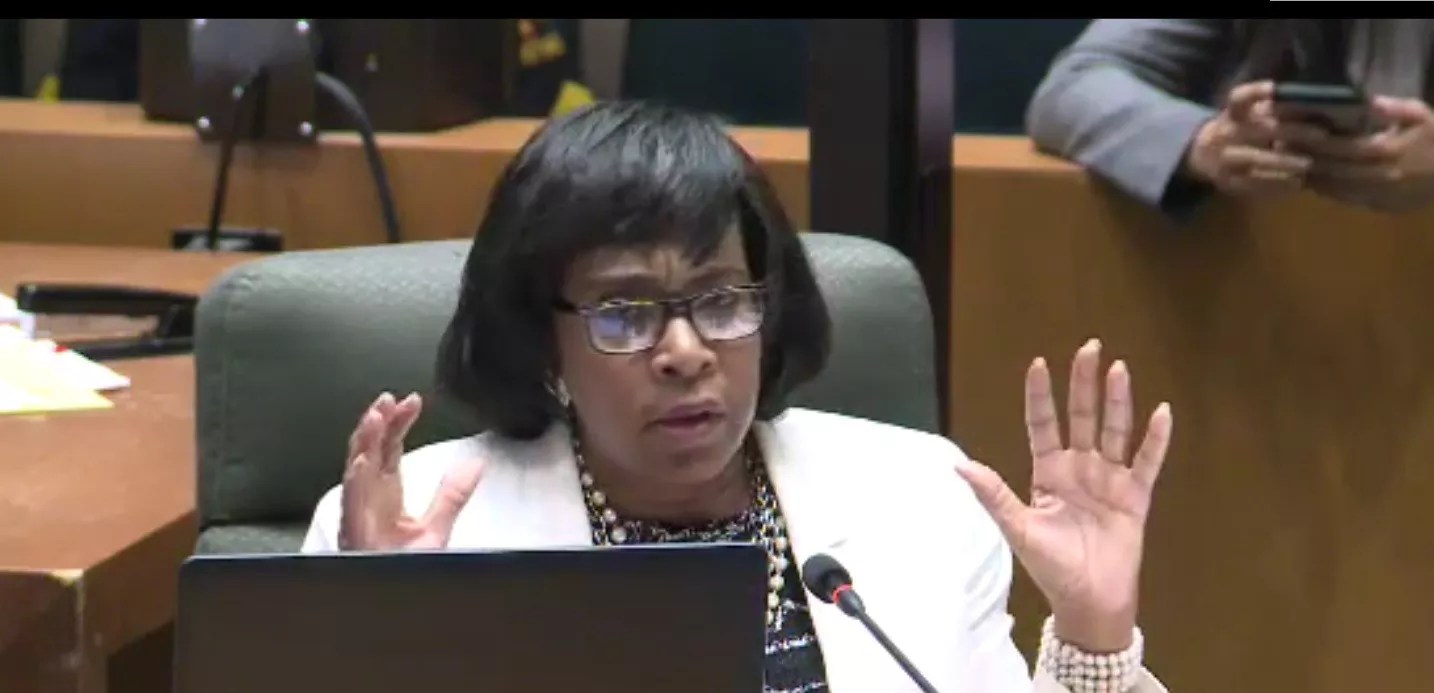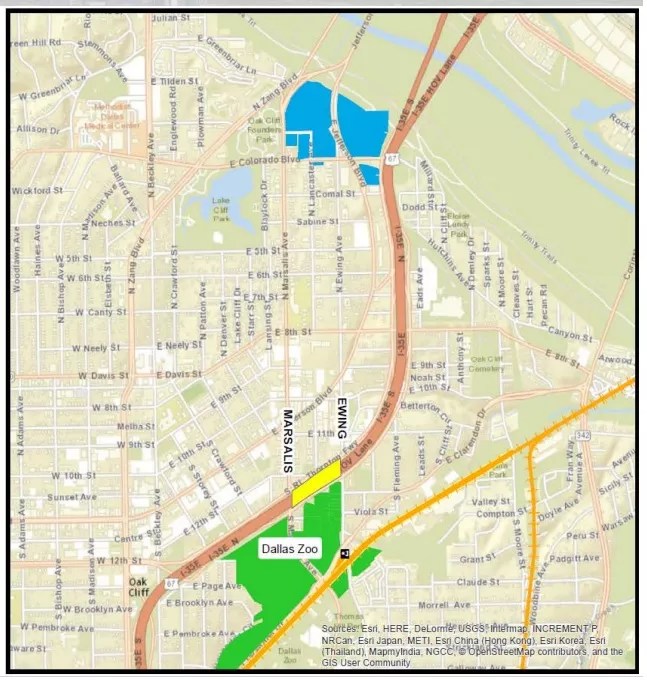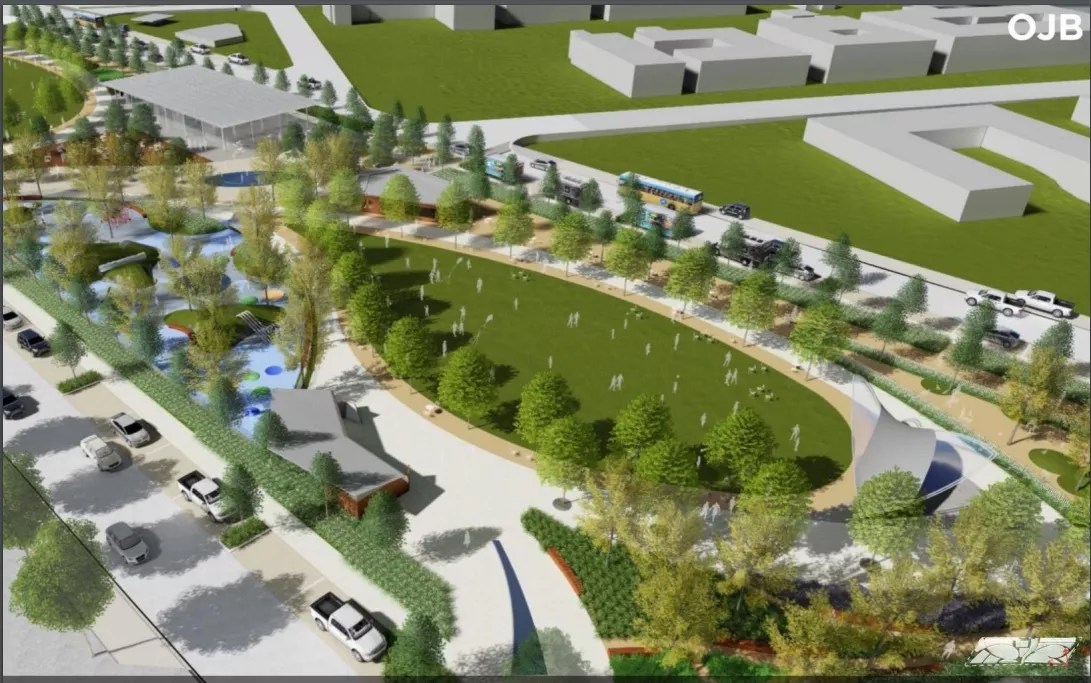
dallascityhall.com

Audio By Carbonatix
Dwaine Caraway’s City Council district is about to do the same thing again: elect somebody who owes her or his soul to outsiders. It’s the tragic flaw in Dallas’ system of city government. Nobody who might really represent a poor district, who might truly stick up for it, can beat the candidates who take their money from people across the tracks.
Of the 13 candidates who want to replace Caraway in the Nov. 6 election, eight filed campaign finance reports in time for or soon after last week’s Oct. 9 deadline. I counted up the money that all of them have collected so far. It comes to $75,715.09.
In a city rigidly segregated by race, income, mobility, education, everything, you have to wonder why the money to elect people on the poor side of the tracks always comes from the rich side. Is it charity?
Of that grand total, the amount that came from ZIP codes within the district is $7,063.73. Check me on this, but I think that’s around 9 cents of every dollar coming from inside the district.
The news – and it’s not news to anybody who knows southern Dallas politics – is that the real money to elect people in southern Dallas comes from North Dallas. In a city rigidly segregated by race, income, mobility, education, everything, you have to wonder why the money to elect people on the poor side of the tracks always comes from the rich side. Is it charity?
Former District 4 council member Carolyn Arnold was ousted in the last election by Caraway, who resigned from office later after pleading guilty to a federal bribery charge. Arnold, who is seeking to be reinstated, leads fundraising among the 13 candidates for the November election with $9,965. Of that amount, almost two-thirds came from outside District 4.
Arnold is one of few candidates in the race who have scored multiple donations over $1,000. One came from Wick Allison, publisher of D Magazine, another from retired Trammell Crow Company CEO Don Williams.
Another candidate scoring contributions in the $500 to $1,000 range is Vincent Parker, pastor of Golden Gate Missionary Baptist Church. His money is coming in from as far away as Pflugerville, just north of Austin.
There certainly is not anything crooked about people outside a council district taking a personal interest in who represents it on the council, and sometimes that interest may be somewhat altruistic, with the emphasis on somewhat.
Williams is a philanthropist with a long track record of important good works in southern Dallas. Allison is co-founder of a political action committee working to make Dallas a more walkable, coherent 21st-century city.
Of course, during her prior stint on the council, Arnold was a mainly incoherent foe of everything those two guys stand for. I assume they are working now to return her to office because something has changed. What can it be?

The proposed park would link the area around the Dallas Zoo in City Council District 4 to the neighborhoods just west of the freeway in District 1.
dallascityhall.com
Arnold was an opponent of the deck park that the city is now ready to spend 47 million public dollars to build over the Interstate 35 expressway between North Oak Cliff and the neighborhoods near the Dallas Zoo. I would call her a vocal opponent, but I was never quite able to understand many of her reasons when she was vocalizing them.
The park would link District 4 on the east side of the freeway with the more affluent Council District 1 on the west side. And let’s not mince words about the purpose of such a significant public investment. The linkage is the whole deal.
District 1 includes the area commonly called North Oak Cliff, which has seen some of the steepest increases in residential property value and commercial activity in the city in recent years. District 4 on the other side of the freeway includes some lovely topography and startling views of downtown, but many parts of it, especially where the deck park will connect, remain locked in poverty and scary-bad crime.
I have met with neighborhood leaders on the District 4 side, and they had what I thought was an extremely interesting take on what to do with the deck park. I was told before we met that they wanted to talk about gentrification, so I assumed our meeting was going to be about how to keep it out.
District 1 on the other end of the park, after all, is pretty much gentrification central for Dallas right now. If North Oak Cliff gets much more gentrified, they’re going to start handing out knighthoods. And, indeed, one of Arnold’s objections to the park when she was on the council was that it would threaten her side of the road with gentrification.
But I was all wet about what the neighborhood leaders on District 4 side wanted to talk about. Our conversations were preliminary and off the record, kind of getting to know each other, so I can’t quote people by name. But in general terms, their attitude toward gentrification was, “How do we get some?”
Let me make sure I qualify that properly. They don’t want to get trampled by it. They are not at all interested in ceding control of their district to outside interests. But they are aware that the only way to free their side of the deck park from ruinous social dysfunction is to push it out with something stronger.
The only thing capable of pushing it out is some degree of replacement by a stronger, more rooted social and economic structure. If you want to call that gentrification, they’re somewhat OK with that.
No, these are not social activists. These are people with roots in the area, who grew up there or have lived there a long time, some of whom own substantial amounts of land, all of whom are educated and have lived, worked or gone to school in other parts of the country. They are post-South Dallas, which, I know, sounds patronizing, but people who know what I mean will know what I mean. They have vision beyond District 4.
From what I have seen so far, some of those 13 people running to replace Caraway – especially the ones not getting big money from downtown – come from the group I’m talking about. I don’t want to name names, because it sounds too much like an endorsement, which my editor tells me I cannot do.
But here is the tragedy I see unfolding already. It’s not that the two candidates with the big outside support, Arnold and Parker, are doing anything wrong by taking that money. It’s all within the law, and it’s all part of the game.
It’s a poor district. There is never going to be a lot of cash splashing around inside. Therefore what comes from outside will be that much more powerful. Amounts of money that would be quite modest in the affluent districts to the north will have an outsized effect in District 4.
Arnold, Parker, maybe one or two others will be the only ones with billboards, the only ones with radio ads, the only ones with significant numbers of skilled, paid door-knockers. The imbalance is exacerbated by the practice of some large churches that charge candidates money for appearances.

The Southern Gateway Deck Park can be the fountain that heals the city, or it can be a big, painful symbol of enduring inequity.
dallascityhall.com
I absolutely understand the pragmatism that leads contributors to focus their money on the candidates they think have the best shot at winning, even if it means the contributors must hold their noses when they write their checks. But I question whether that process ever really gets the job done. The tragedy of pragmatism here is that it may miss the moment.
This is an all-important point in time for District 4 but also for the city. The experiment at the deck park is taking place at a key inflection point.
The tragedy of pragmatism here is that it may miss the moment.
On the west side of the park in District 1, City Council member Scott Griggs has already prepared the ground brilliantly. When the development interests come looking for ways to capitalize on the presence of that park, as they have all around Klyde Warren deck park in Uptown, Griggs has made sure the right zoning and public infrastructure will be there waiting for them with open arms.
On the other side of the park, very little has been done. While council member Caraway was off getting himself into trouble gambling with hoods in Louisiana, his side of the new park went untouched, unprepared and unimproved in any significant way for the opportunities ahead.
The deck park, if and when it is completed, can be one of two things. It will be the bridge that its backers have always hoped it would be, marrying the two sides and diminishing the inequity between them. Or it will be the most bitter visible symbol of inequity in the city, with prosperity at one end and concertina wire and armed guards at the other.
If we are able to thread that needle, if there is a way to make the deck park a true bridge and not a wall, then it may be the fountain that finally pours a shared prosperity across the dividing line between the two cities. It’s that important.
But threading that needle is going to require a good deal of sophistication at both ends of the deck. My own sense is that the sophistication is in place and ready to serve on the District 4 side, but it resides with the younger, less well-known and less well-funded candidates.
I know, I know. It’s their job to get themselves funded. It’s their job to get themselves better known. Maybe some of them will.
In the meantime – repeating everything I said already about outside funding not being against the law or even necessarily unethical – I wish the voters of District 4 would look hard at it anyway. It should be an issue. What does it mean when the lion’s share of a candidate’s funding comes mainly from people who don’t even live in the district? Can that ever be a good thing for the district?